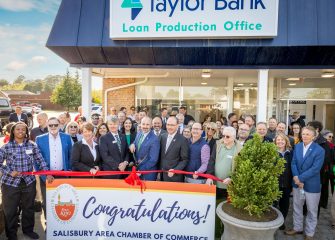
The Salisbury Area Chamber of Commerce’s Young Entrepreneur’s Academy (YEA!) will present their CEO Roundtable event at Salisbury University on Wednesday, February 17, 2016 from 5:30 to 7 p.m. This event will showcase CEO’s, business owners and community leaders to the future entrepreneurs in the YEA! class. In this panel, leaders will discuss their duties, companies and offer helpful business and networking advice.
The CEO Roundtable will be hosted in the Franklin P. Perdue School of Business Auditorium at Salisbury University. Admission for the event is free and open to the public.
The panel will feature local CEO’s Brent Miller, Managing Director and Senior Advisor of SVN, Bradley Gillis, Principal at Devreco, Robbie Tarpley Raffish, President of a.s.a.p.r. integrated marketing, Robb Sartorio, Owner of Servpro, and Kevin J. Hayes, Vice President of Avery Hall Insurance. The moderator for the panel will be George Koste, Executive Director of Maryland Capital Enterprises.
The panelists will answer a wide range of questions from their biggest failures and successes to the importance of reputation to a business. The audience is invited to ask questions of the panelists. The panel will provide the future entrepreneurs in the YEA! class valuable learning tools they can use to successfully run their business.
The CEO Roundtable is sponsored by SVN, Bradley Gillis of SVN, Servpro, Pohanka Automotive Group of Salisbury, and Avery Hall Insurance.
The Young Entrepreneurs Academy (YEA!)
Classes began on November 10th and are hosted at the BEACON suite at Salisbury University in the Franklin P. Perdue School of Business. The 2015-2016 class is the 1st YEA! class on the Eastern Shore. The first segment focuses on idea brainstorming and idea generation. Throughout the year, students work in close cooperation with local business leaders, community leaders and educators who use their personal experiences to demonstrate how to develop ideas and objectives, write a business plan, pitch potential investors, obtain funding, register with governmental agencies, establish e-commerce and a web presence, and much more. By the end of the class, students own and operate fully-formed and functioning businesses, which may be carried after their graduation from the program.





